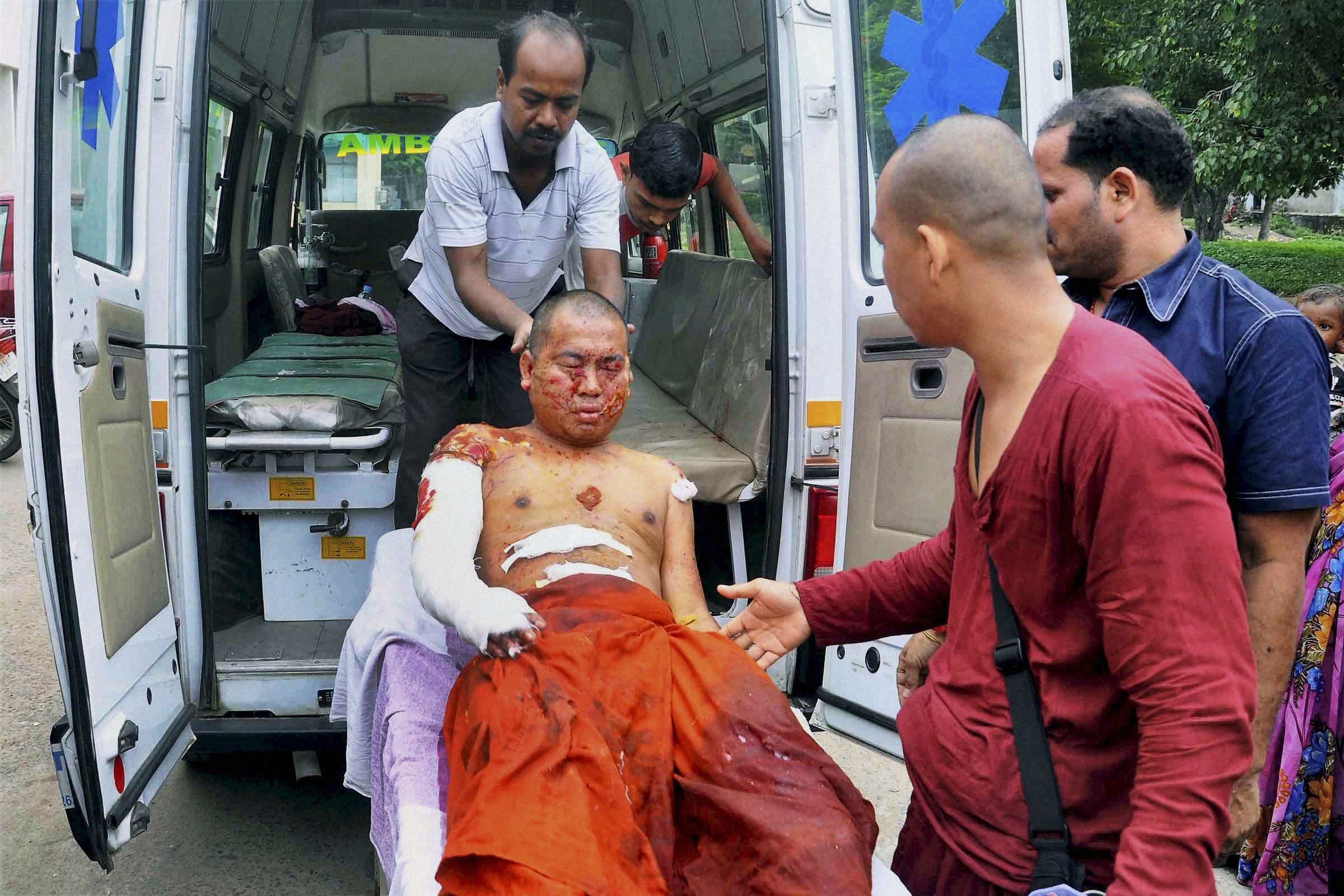
Photo: Vijay Pandey
Last week the Delhi government told the Delhi High Court that it does not have any policy to provide “prolonged or life-long treatment” for a patient with a rare genetic disorder. Afreen Ansari, 13, who was diagnosed with Turner’s Syndrome two years ago, is the patient in question here. Turner’s Syndrome is a rare genetic disorder, that affects growth and causes multiple medical problems, including amenorrhea, infertility and heart defects.
Although there is no cure for the disease, survival with prolonged treatment is possible. Afreen was prescribed growth hormone therapy, which costs Rs. 15,000, for a period of three-four years by experts and doctors at LNJP hospital.
Sagir Ansari, her father, who works as a tailor and is the sole bread winner of the family of four, merely makes Rs. 7,500 a month and does not have the means to purchase medicines for her.
When Afreen was first diagnosed with Turner’s Syndrome, her father had no hope. However, Ansari has received a sum of Rs 50,000 as financial assistance from the Prime Minister’s Relief Fund and Rs. 1 lakh from the Health Minister’s discretionary grant last year.
However, LNJP hospital has informed the High Court that this amount will only suffice for the next few weeks and the continuation of treatment depends on the availability of funds.
Although the government’s response to her plea brings uncertainty to the continuation of her treatment, Afreen’s father is determined to fight.
After she was diagnosed with Turner’s Syndrome, Afreen, along with her mother and younger sibling, moved back to their village in Uttar Pradesh, while her father continues to work in New Delhi.
“Although we received medical assistance for her treatment, there were several additional costs that we had to bear. I sent my wife and children back to the village so that we could save from the very little (money) I make,” says Sagir Ansari. Afreen travels to the Capital for check-ups every two to three months.
In another case of a 7-year old boy, who suffered from Gaucher’s Disease, in April 2014, the Delhi High Court had ruled that the state had a constitutional obligation to provide medical aid to economically weaker sections of the society for treatment of rare ailments like Gaucher’s Disease.
Gaucher’s Disease is a rare genetic disorder due to which the body cannot process fat, which leads to a build-up of harmful substances in the liver, spleen, bones and bone marrow and prevents the normal functioning of cells and organs.
There is no cure for the disease and survival without treatment is unlikely. The treatment, which involves enzyme replacement therapy, is lifelong and is prohibitively expensive.
At the time of diagnosis, 7-year old Mohammad Ahmed’s treatment cost Rs. 4.8 lakh per month. His father Sirajuddin, who works as a rickshaw puller, was helpless when he found out.
Between 2005 and 2012, Sirajuddin lost four sons to the disease because he could not afford to pay for their treatment. Although he received some assistance from the Directorate of Health Services, Government of Delhi in July 2013 and could start treatment, his family was asked to bring in more money to continue treatment as funds received from the government had been exhausted. The court upheld the right to health and access to health care as part of the right to life guaranteed under Article 21 and directed the Delhi government to pay for Ahmed’s treatment which costs Rs. 6 lakh every month.
The judgment is the first-of-its-kind vis-à-vis medical aid for rare diseases and is held as an important one by those working in the field, especially at a time when India has no policy on the subject. There are approximately 7,000 rare diseases, 80% of which are genetic in nature. Although there are no official figures for the number of people living with rare diseases in India, according to the Organisation for Rare Diseases in India (ORDI), a Bangalore-based nonprofit, there are an estimated 70 million individuals suffering from such diseases. ORDI is a one-of-its-kind organisation comprising doctors and scientists, that lends support to parents and children who suffer from rare genetic diseases, also known as orphan diseases.
Prasanna Shirol, a Bangalore-based former sales executive, who has worked with leading mncs and is a founding member of ORDI, says that he realised the challenges in diagnostics, treatment, care, support and rehabilitation of patients suffering from rare diseases when his daughter was diagnosed with the life-threatening Pompe’s Disease. It causes debilitating and progressive muscle weakness because of a defective gene received from one of the parents. Shirol and his wife travelled across the country and went to over 40 hospitals before their daughter was diagnosed.
“Although things have improved over the last five years, awareness is still very low among the medical fraternity,” he rues. Their daughter’s was the first case of Pompe’s Disease in India. The treatment, which involved enzyme replacement therapy, cost Rs. 30- 40 lakh per month at the time.
“We were lucky because at the time, a charitable trust based out of the US had a free drug access programme for the disease,” says Shirol. The cost of her treatment has gone up to Rs. 1.26 crore a month but it has continued with the help of the organisation.
Countries like the US, China, Taiwan, Japan and 14 countries across Europe have a policy for orphan diseases. Shirol says India, too, should have a policy for orphan diseases.
“There is a need for incentives for the pharmaceutical industry to start research and development and (ensure) affordable drugs are available, diagnostic centres are set up and individuals who do not belong to BPL families are also covered — this is especially important because treatment costs are prohibitively expensive even for an individual who does not belong to the economically weaker sections,” says Shirol.
ORDI, which is a collective of doctors and scientists, is now in the process of setting up care centres for individuals suffering from rare diseases across five private hospitals — two in the Capital and three in Karnataka.
This is to ensure that there is integration in the healthcare system which is of prime importance as rare genetic disorders can affect multiple organs.
“The cost of treatment for rare genetic diseases disorders can prove to be a huge burden on the public healthcare system. While there is a need to set up facilities to deal with existing cases of such diseases, creating awareness and setting up screening centres to prevent new cases is of prime importance,” says Dr Prakash Gambhir, a paediatric geneticist and former head of department of genetics at the Maharashtra University of Health Sciences. “However, there is a lack of awareness among doctors, as genetic disorders aren’t given much importance in the curriculum,” he adds.




